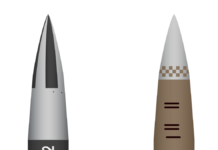In a deeply regrettable incident that has drawn global attention, Israel’s top military officer has issued an apology following a drone strike that mistakenly targeted a food convoy in Gaza, resulting in the deaths of seven aid workers. This devastating event, involving security personnel from the World Central Kitchen (WCK) charity, has sparked worldwide outrage and calls for a thorough investigation.
The attack, described by many as outrageous, occurred as the team was transporting food from a warehouse to distribute to Gaza’s hunger-stricken population. Among those tragically killed were former Royal Marines James Henderson, John Chapman, and ex-soldier James Kirby. The convoy, marked clearly to denote its humanitarian mission, fell victim to what the Israeli Defense Forces (IDF) chief Herzi Halevi later identified as a misidentification amid the complexities of war.
Lt. Gen. Halevi’s acknowledgment of the incident as a grave error has done little to quell the growing condemnation from various corners of the international community. Aid agencies and human rights experts, including the United Nations special rapporteur on human rights and counterterror, have raised concerns that this act could potentially be classified as a war crime due to the deliberate targeting of humanitarian workers.
The IDF has committed to conducting an independent and thorough investigation into the circumstances that led to this tragic mistake, promising swift implementation of any findings. Additionally, the IDF has taken immediate steps to prevent such incidents in the future, including the establishment of a Humanitarian Command Center aimed at improving coordination for aid distribution in Gaza.
The implications of this incident are far-reaching, affecting not just the immediate victims but also the broader efforts to deliver humanitarian aid in conflict zones. The strike on the WCK convoy underscores the perilous conditions under which aid organizations operate and the critical need for clear communication and safeguards to protect those endeavoring to provide relief in such challenging environments.
This incident comes amid escalating tensions and ongoing conflict in the region, highlighting the fraught relationship between military operations and humanitarian efforts. The loss of life has prompted a reassessment of procedures and protocols to ensure the safety of aid workers, who perform crucial roles in mitigating the humanitarian crisis in Gaza.
The international community awaits the outcomes of the investigation, with many calling for accountability and measures to prevent the recurrence of such incidents. The tragedy has spotlighted the delicate balance between security concerns and the imperative to protect and assist civilian populations in times of war.
As the situation unfolds, the world watches closely, hoping for justice for the victims and for renewed commitments to safeguarding humanitarian missions. The incident serves as a somber reminder of the consequences of warfare on civilian and humanitarian operations and the ongoing need for vigilance, compassion, and respect for international humanitarian laws.
Image is licensed under the Creative Commons Attribution-Share Alike 4.0 International license and was created by Tutu8.








